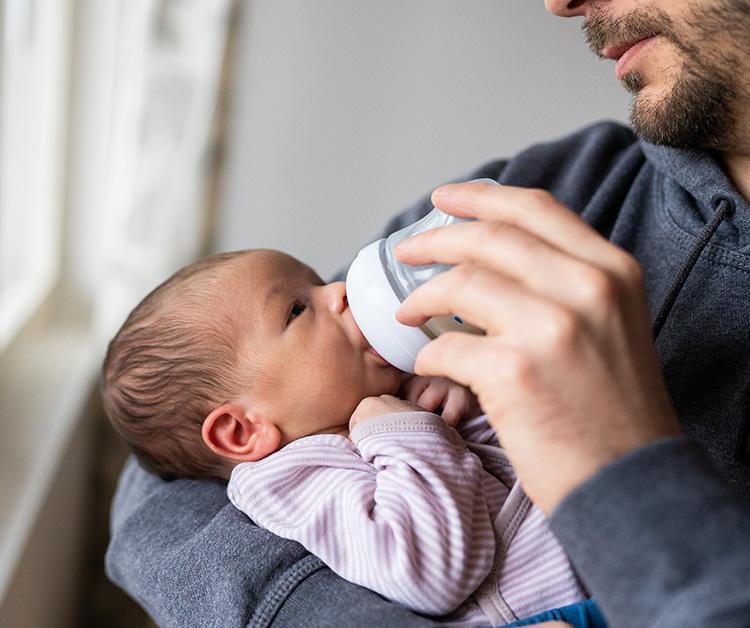Due to maintenance, rewards points for receipt uploads will be delayed. Thank you for your patience!

If your baby arrives ahead of schedule, proper feeding is critically important. It may also present some challenges. By working closely with your baby's health-care team and keeping yourself informed (and calm), you can help her get the nutrition she needs during those crucial few weeks.
Tinier babies have tinier tummies. This means she'll have to eat a lot of small meals in order for her to gain weight.
If your baby has spent her first few days with tubes and respirators in her mouth, she may assume that anything that goes into her mouth is painful, including a breast or a bottle.
Feeding her too fast by mouth may result in a feeding aversion or spitting up. She is also likely to have more digestive problems than a full-term baby, since her digestive system may not be as mature as a full-term baby's.
Try these tips on feeding your premature infant:
All information on Enfamil, including but not limited to information about health, medical conditions, and nutrition, is intended for your general knowledge and is not a substitute for a healthcare professional's medical identification, advice, or management for specific medical conditions. You should seek medical care and consult your doctor or pediatrician for any specific health or nutrition issues. Never disregard professional medical advice or delay seeking medical treatment, care, or help because of information you have read on Enfamil.